Tips for Selling an Amazon FBA Business for Huge Profits
Odds are that if you’re an Amazon FBA business owner, you’re leaving cash on the table.
There are powerful changes waiting to be implemented on your business that can turbo charge your earnings and, even better, drastically improve your business overall. Those changes and better value compound into a higher valuation for your business should you decide to sell. You can even take help of a professional Amazon agency to adapt to these changes and establish your brand.
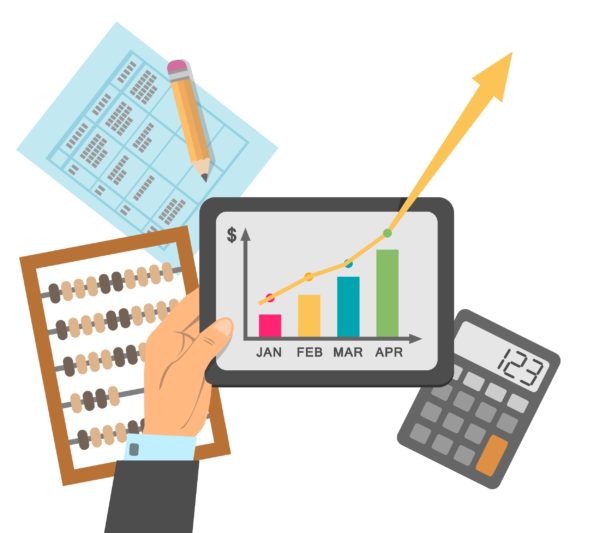
What you do today affects what you could earn from the totality of your business down the road, so let’s take the mystery out of the process and uncover the most impactful tactics you can use to improve your business and make the most money from an exit.
Determining the Right Time to Sell
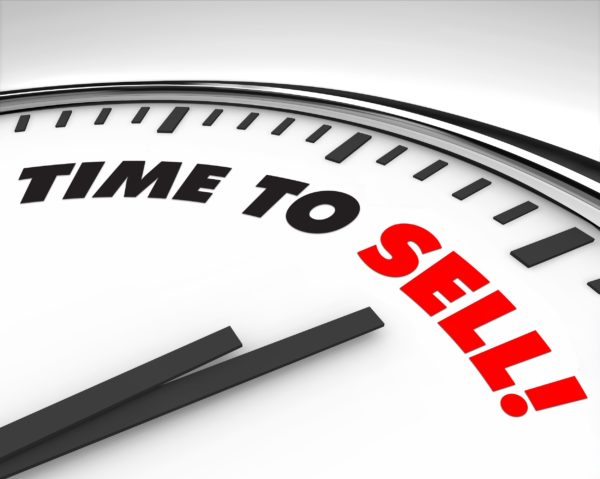
You know it’s the right time to sell when you’ve lost passion for your business, need capital to pursue other opportunities, or you need the time that you normally spend on your business.
In a nutshell, you want to carve out a new path away from your current FBA business.
Doing so can be a life-changing decision, because the cash you receive from selling your FBA business can be anywhere between 2.5 and 4 years of profit upfront.
That bulk of cash will give you the wiggle room to call the shots in your life and do things like buy a house, invest in another business, or even adopt a child (something we’ve seen sellers do on our marketplace).
If you’re curious about the exact time to sell a business during the calendar year, it comes down to your situation.
Most FBA businesses benefit from a boost during the holidays or a certain season if their product is seasonal. Keeping in mind when your FBA sales jump during the year can help you determine if you can base your sale around your peak period.
An advantage of selling before your peak season is it gives you negotiation leverage. A buyer may be keen to meet you at your asking price without drawn-out negotiations if they know your peak period is almost there, and they may want to cash in on the business’s peak sooner than later.
If your FBA business is still under two years old, you may want to hold off and sell later. This allows you to demonstrate some consistency in your earnings and show buyers how your peak season performs. Plus, you’ll get those peak period earnings in your pocket that, depending on your financial situation, can prove very useful.
How to Sell Your Business

You have one of two options when you want to sell your business: work with a broker or sell the business on your own.
The easiest way to go about selling is to work with a trusted broker and marketplace.
While going out and trying to sell a business on your own may look like it could save you a bit of money, people who try and sell their businesses on their own usually receive less for their business because they didn’t value their business properly or negotiate well with buyers seeking to get the business as cheaply as possible.
Not to mention the time and money lost should you encounter other difficulties that could have been avoided by working with experts; this smoother selling adds to the value proposition of working with a broker.
When you work with a broker, you’ll be able to get an accurate valuation right online for your business. Great brokers will have standards and vetting in place to ensure offered businesses are worthwhile listings, so if your business passes its review, all you have to do is sit back and let interested buyers roll in.
Another major benefit of working with a broker is that they have large buyer pools already in place, making attracting potential buyers to your business completely hands off for you.
Preparing for a Sale
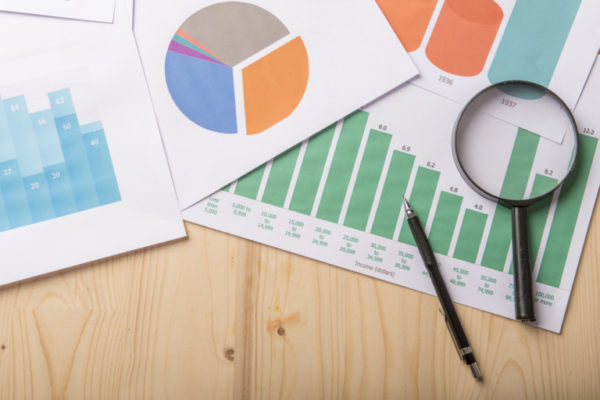
To be ready to sell, you’ll need to have all your financials and important documents in order. Anything related to the business that’s pertinent to understanding how to run it needs to be clear and ready to hand off to a buyer.
When you’re ready to pursue selling your business, you’ll also need a ballpark figure of how much your business is worth.
Our multiples are slightly different from other brokers, so we’ll break down how they work.
Our multiple is 6-12 months’ Average Net Profit multiplied by 20 to 60+, depending on the state of your business. The multiple is dependent on a number of factors, including business age, social media followers, email list subscribers, and traffic diversity.
In simple terms, that breaks down to:
Monthly Net Profit x Multiple = Valuation
In the 2020 Empire Flippers Industry Report, we amassed data from all online businesses sold on our marketplace and found that Amazon FBA businesses sold for an average multiple of 26.2x. So imagine whatever your FBA business is earning you monthly right now, then multiply that by 26.2. That’s a pretty sweet deal.
That average multiple is by no means the highest benchmark to shoot for. Plenty of businesses sell for much higher multiples when optimized correctly. Let’s explore how you too can achieve your highest possible multiple.
Tactics for Increasing the Value of your FBA Business

Now that you have a sense of how valuations work, let’s go over the ways that you can boost your valuation and get even more money from selling your business.
Building an Established Brand
In today’s competitive FBA landscape, establishing a brand for your products is essential. Brands communicate professionalism and trust, giving customers businesses they can identify with.
Amazon has encouraged brand building with things like its Brand Registry, to help you trademark and protect your brand from copycats, and Amazon A+ Content, for creating visually driven listings that use video, graphics, and photos to optimize them.
A brand can grow further off of Amazon through social media and an email list. All of these brand building tools help solidify your brand and a stronger sales price.
SOPs and Support Teams
To further expand on the importance of operations, having a complete guide to running them is a key asset for new owners.
Guidelines for your business are called standard operating procedures (SOPs), which lay out how to run your business in its entirety. An easily understood SOP incentivizes new buyers to acquire your business and helps your valuation, since it shows your business can be easily broken down into comprehensible directions.
Having a team in place to support your business can also help sweeten the deal for buyers.
A team of virtual assistants (VAs) willing to stay on with a new owner means a buyer can take advantage of a team that already knows how to run operations. Having an established team of VAs and understandable SOPs in place means the business can run as usual, even under new ownership, and make a world of difference in getting your business sold quickly.
Simplifying Operations
Bad operations is one the single biggest deterrents to a good valuation for an FBA business.
Bad operations might be doing quality checks on products by yourself in your garage, spending 60 hours a week maintaining the business, or having one problematic supplier. All of these are operations headaches and almost no buyer will want to fix these situations themselves; they’re going to want a business they can walk into and operate with ease.
It’s important to simplify your operations so the business can run as hands-off as possible. If your business is self-sufficient, its salability and overall value improves.
Get the SKU Count Right
You want your SKU count to be manageable in the eyes of a buyer.
Thousands of SKUs cause buyers to believe your business is complex to run. If they start digging into your business and see that is the case, they might bypass it.
Lower SKU counts with solid performance are in high demand because there are fewer products to oversee, leaving more energy for optimizing a lower number of listings compared with businesses with hundreds or thousands of SKUs.
If you can operate from a sweet spot in terms of SKU count (just enough SKUs to maximize performance and opportunity within the niche), this will signal you have a prime opportunity for buyers and help your valuation.
Trending Niches and Product Lines
Trends can go one of two ways: they can hurt you or help you.
Trending products will only hurt if you sell products that are fads. Fidget spinners are a great example. Sure, they blew up and experienced enormous popularity for a while, but they had no future promise. As soon as some FBA sellers cashed in on fidget spinners, competition plus declining interest made long-term profitability difficult for that product.
Conversely, selling in a niche, such as healthy goods or sustainable products, has a longer growth runway by reflecting a greater change in buying habits from consumers.
By staying broad and flexible in a growing niche, you’ll have a much easier time selling to buyers looking to cash in on trends themselves.
Having a Well-aged Business
If you have a business that is doing well, and you’re excited about the prospect of selling it, but the business is less than a year old, you may want to hold onto it.
Young businesses, even if they have consistent earnings, don’t have enough history to prove they can keep earning in the future.
A business needs to be able to prove itself through data collected over time and show average earnings that inspire trust. By holding out, letting your business grow and earn more for a couple of years, you can also earn a much higher multiple for your business.
Having Diverse Suppliers

The old saying “never put all your eggs in one basket” applies to how you build out a supply chain for your business.
Relying on one supplier for your business means if they have any problem fulfilling orders, your product supply dries up.
By ensuring you can source products from diverse suppliers, you create a safety net for your amazon reserved inventory, which is the lifeblood of an Amazon FBA business. You don’t need several suppliers; a sweet spot of 2-3 well-trusted ones works. This, in turn, makes your business more valuable to buyers by making it less risky to take on. More value to a buyer equals a better valuation and more money in your pocket.
Ready to Make the Most of Your FBA Business?
Now that a roadmap for growth has been laid out for you, there is only one question left: what are you waiting for?
Now is a good time to start implementing changes, big and small, to your FBA so you can watch it reap higher dividends on your monthly profit and set you up for a stronger valuation when you are ready to sell your business.

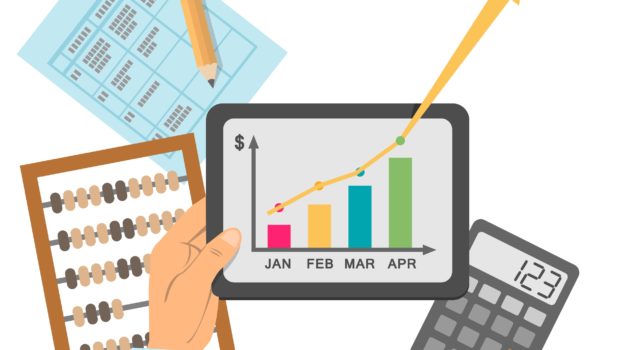

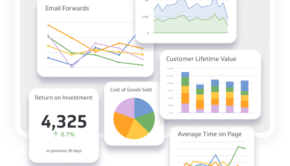





![Getting started in FPV drone racing [Infographic]](https://technofaq.org/wp-content/uploads/2017/04/do-you-want-to-fly-drones-150x150.jpg)






